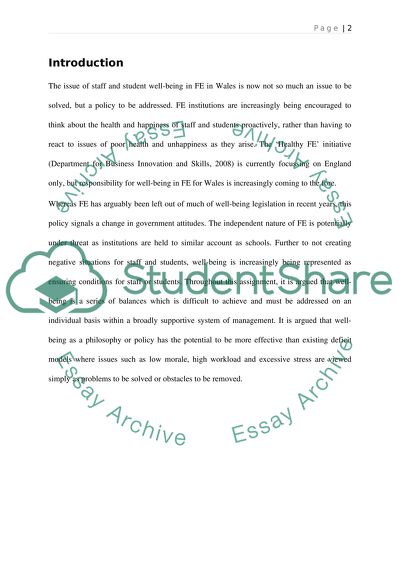Cite this document
(“Teaching Staff and Students Well-being Essay Example | Topics and Well Written Essays - 4750 words”, n.d.)
Teaching Staff and Students Well-being Essay Example | Topics and Well Written Essays - 4750 words. Retrieved from https://studentshare.org/education/1510721-teaching-staff-and-students-well-being
Teaching Staff and Students Well-being Essay Example | Topics and Well Written Essays - 4750 words. Retrieved from https://studentshare.org/education/1510721-teaching-staff-and-students-well-being
(Teaching Staff and Students Well-Being Essay Example | Topics and Well Written Essays - 4750 Words)
Teaching Staff and Students Well-Being Essay Example | Topics and Well Written Essays - 4750 Words. https://studentshare.org/education/1510721-teaching-staff-and-students-well-being.
Teaching Staff and Students Well-Being Essay Example | Topics and Well Written Essays - 4750 Words. https://studentshare.org/education/1510721-teaching-staff-and-students-well-being.
“Teaching Staff and Students Well-Being Essay Example | Topics and Well Written Essays - 4750 Words”, n.d. https://studentshare.org/education/1510721-teaching-staff-and-students-well-being.


